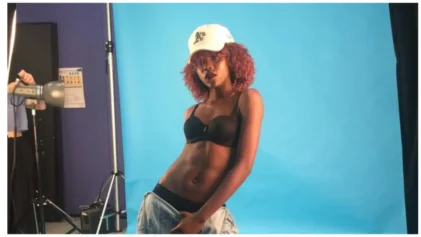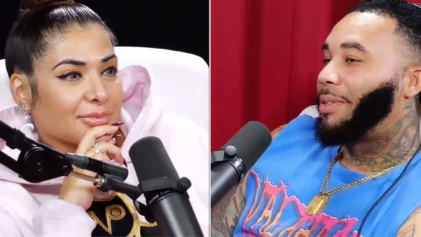
Justin (left) and Brian Gerrard, brothers and co-founders of the BAE app, with Jordan Kunzika (not pictured).
Online dating is the natural evolution of courtship in an era where social interaction is more likely to take place over a keyboard, than a cup of coffee. Gone are the days of chance encounters and love letters mailed in earnest. Today, people want romance just like they want their movies, on demand.
Match, OkCupid and Tinder are a handful of digital platforms that promise to unite couples with the click of a button. In these virtual bar scenes, stolen glances are replaced with hasty swipes, and complex algorithms play the role of yenta.
Sometimes, in this illusory world where nothing is exactly as it seems, love happens, but for the most part, as people sort through profiles like the pages of a catalog, dating has become less ritual, and more of a numbers game– a numbers game where the odds are often stacked against African-American romantic hopefuls.
“I was talking to one of my friends. He was a white guy, attractive guy. He’d just been on Tinder for maybe a week or so and he had 40 or 50 matches already,” says Brian Gerrard, 26.
Last summer, Brian and his brother Justin Gerrard, 28, joined a small group of aspiring entrepreneurs who periodically met for dinner in New York City.
“Basically, just a small group of eight guys,” Brian recalls. “We were passionate about tech and wanted to start our businesses.”
It was during a random conversation with this group, about online dating, that the Gerrards were struck with inspiration.
“[There was] another guy. He’d just gotten on there. Equally attractive, Black guy—and he had like 4 or 5 matches,” says Brian.
Shortly after that conversation, the brothers, along with Jordan Kunzika, a first generation Angolan-American, created BAE , Before Anyone Else, a mobile dating app that caters specifically to African-American singles. The founders launched the app at Howard University in April, and received over 17,000 downloads in its first month, outperforming an early Tinder.
In spite of the egalitarianism that permeates millennial culture, and wide-spread acceptance of interracial couples, on-line dating is anything but color-blind.
“We interviewed some women, for example, who were on these mass market sites,” says Brian, “And they were getting harassed on the sites to some degree, overly-sexualized by guys on there. Most of the times these guys weren’t Black.”
In addition to being the subject of an unwanted fetish, statistics such as those recently compiled by dating mega-site OkCupid suggest that Black women fair the worst on dating sites. According to the OkCupid study, “Black women reply the most, yet get by far the fewest replies. Essentially every race- including other blacks- singles them out for the cold shoulder.”
Circumstances are not much better for Black men given the marked preference for white men, among white, Asian and Hispanic women on mainstream dating sites. And for Black people seeking other Blacks, the pool is often too shallow to generate meaningful matches.
BAE’s founders understood the pain points within the African-American dating experience intimately, and set out to create an app that would not only generate downloads, but genuine connections too.
Like Tinder, BAE has a double opt-in feature, meaning potential suitors can only engage via chat if there is a match. Members are also limited to viewing 30 photos every eight hours, and an algorithm tracks user behavior in order to predict compatibility.
“There’s been over 10,000 matches on the app, tens of thousands of users, and tens of thousands of downloads,” says Brian, who quit his position at Nielsen to work on BAE full-time.
Justin, a graduate of Harvard, deferred his second year of Dartmouth’s Tuck Business School to invest time in the start-up. So far, the risks have come with great reward. The trio of Black male founders, a rarity in tech, say they are halfway through their seed round of funding, $30,000 of which came from placing first in Dartmouth’s pitch competition.
Going forward, the team is preparing for an HBCU college tour this fall that includes Howard, Hampton and North Carolina A&T among others.
“Our community wouldn’t be where it is today without the support from that initial Howard launch, from HBCU’s, so this is our way of introducing more people to the brand and thanking them,” Justin says.
During their tour, the team will make it a point to generate opportunities for college students interested in tech. BAE utilizes campus ambassadors, college students who help the team promote the app among Black college students and alumni, while receiving intern experience, sometimes even credits, and contacts in exchange.
“One of the things for us,” says Justin, “especially as a team of all people of color, is to provide meaningful opportunities when we visit campuses to talk about how to start a business, how to build an app, or other aspirations that [students] may have.”
The BAE app is available for download on the iPhone and Android devices. You can also follow the startup on Twitter @BAE_app.


